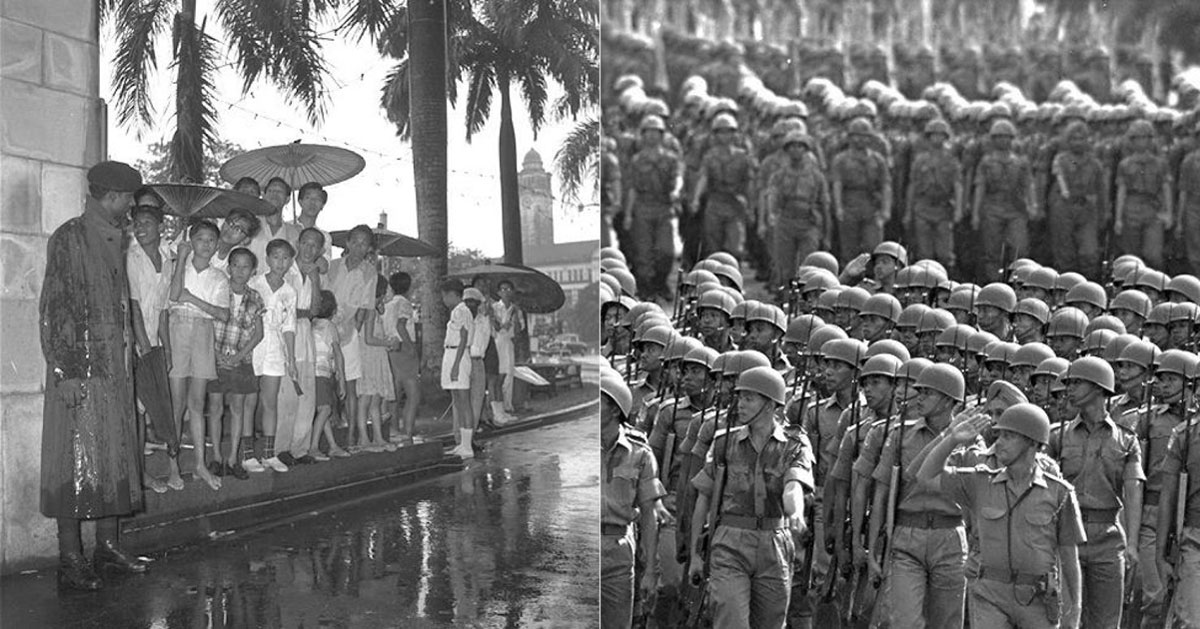Singapore held her first-ever National Day Parade (NDP) as a one-year-old nation on Aug. 9, 1966.
Since then, the NDP has evolved to become a highly-anticipated and highly-sophisticated event with many moving parts and mass participation from all sectors of society.
Here's what happened during the first-ever NDP.
Aug. 9, 1966: 9am.
The parade commenced at 9am at the Padang.
From 1966 to 1973, the parade took place in the morning instead of the evening.
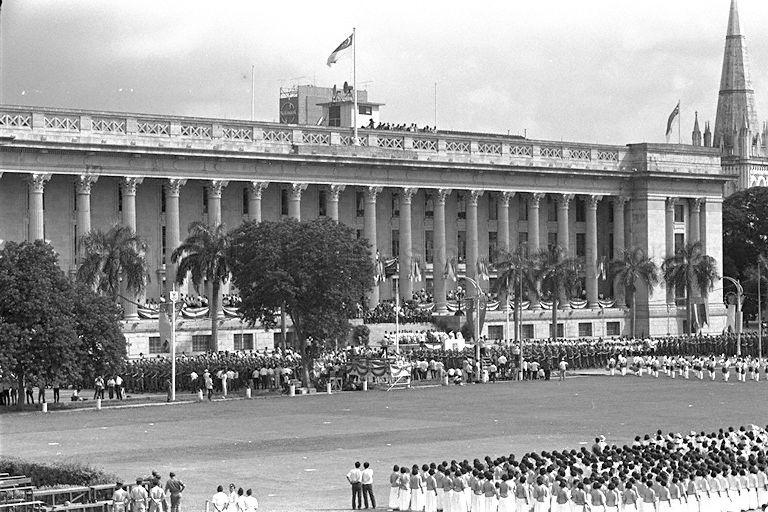 Bird's eye view of the parade. Photo from NAS
Bird's eye view of the parade. Photo from NAS
At that time, Lee Kuan Yew was Prime Minister, Toh Chin Chye was Deputy Prime Minister and S Rajaratnam was the Minister for Foreign Affairs and Culture.
They were photographed arriving at the parade:
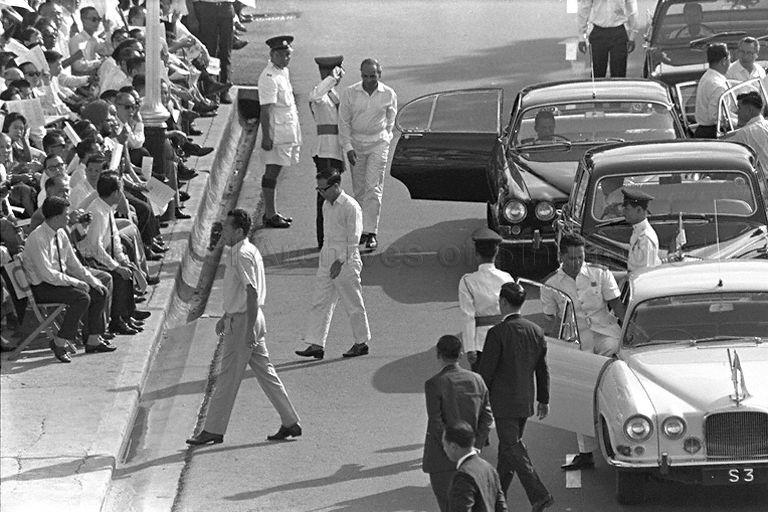 Lee Kuan Yew Toh Chin Chye and S Rajaratnam arriving at the parade. Photo from NAS
Lee Kuan Yew Toh Chin Chye and S Rajaratnam arriving at the parade. Photo from NAS
Yusof Ishak, the then-president of Singapore, rode in the ceremonial vehicle.
He waved to the crowd, and then inspected the parade:
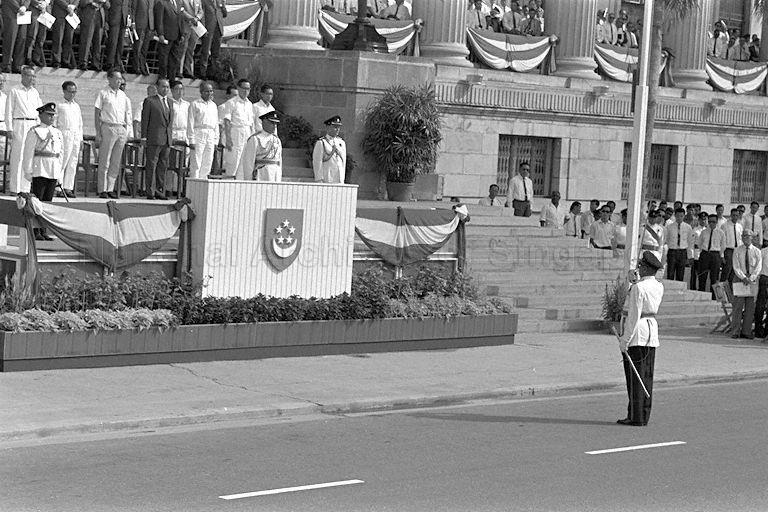 The parade commander inviting then-President Yusof Ishak to inspect the parade. Photo from NAS
The parade commander inviting then-President Yusof Ishak to inspect the parade. Photo from NAS
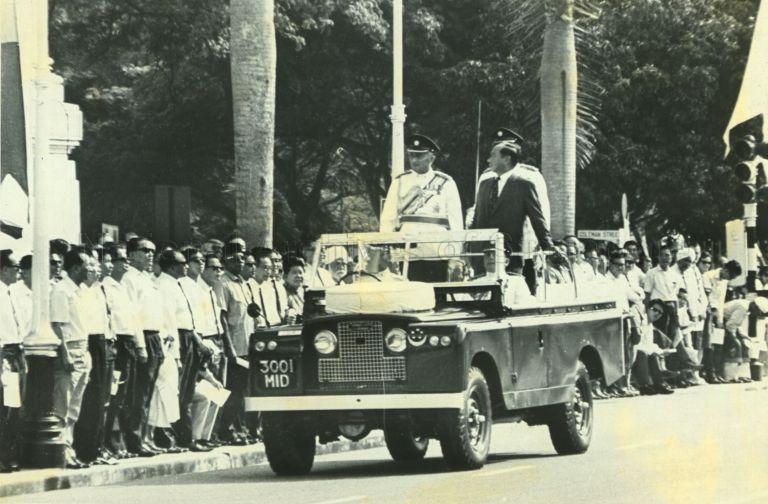 Yusof Ishak on the ceremonial vehicle. Photo from NAS
Yusof Ishak on the ceremonial vehicle. Photo from NAS
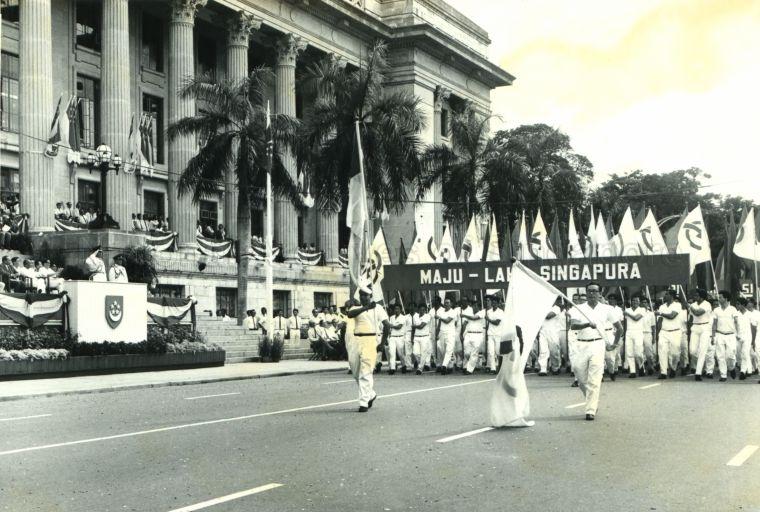 Participants marching down City Hall. Photo from NAS
Participants marching down City Hall. Photo from NAS
The march-past took place after the parade inspection.
Some 23,000 people were involved, including soldiers, civic and uniformed groups, teachers, trade unionists, and children.
As National Service was not implemented yet, many people in the contingents were volunteers.
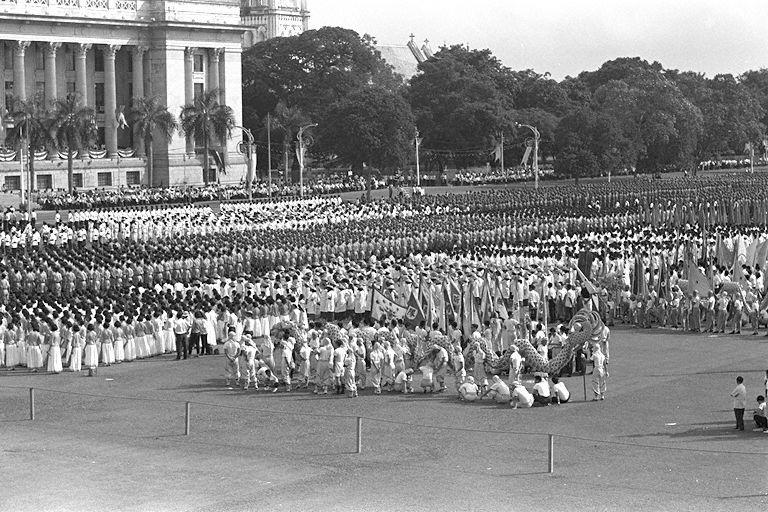 Contingents waiting for the parade to start. Photo from NAS
Contingents waiting for the parade to start. Photo from NAS
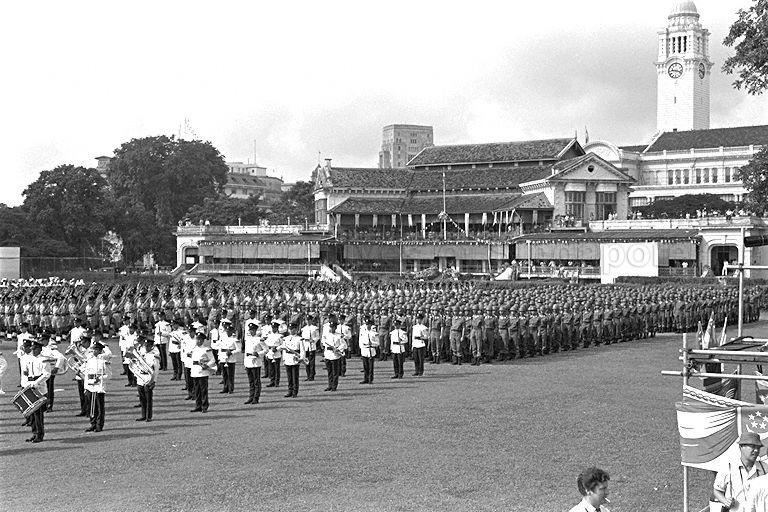 View of the contingents. Photo from NAS
View of the contingents. Photo from NAS
The march-past was led by the People's Defence Force (PDF).
At that time, the PDF was a reserve combat unit to supplement the regular Singapore Army.
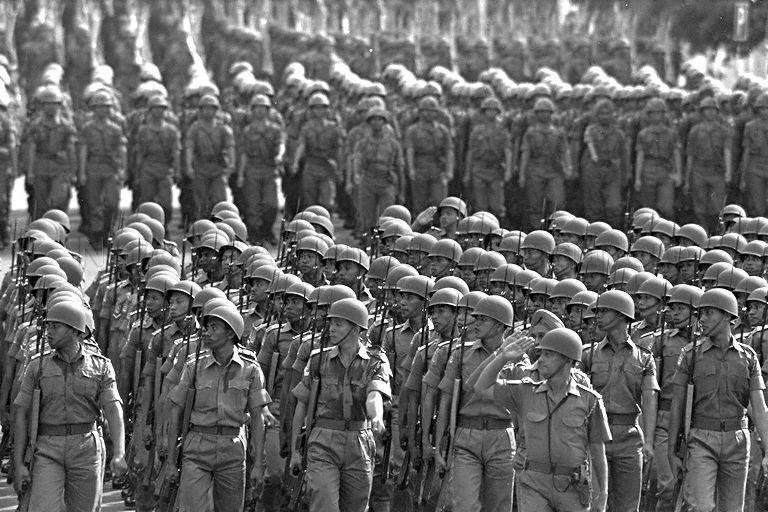 The People's Defence Force. Photo from NAS
The People's Defence Force. Photo from NAS
As the military contingents marched through Chinatown towards Tanjong Pagar, spectators lined the streets to watch them.
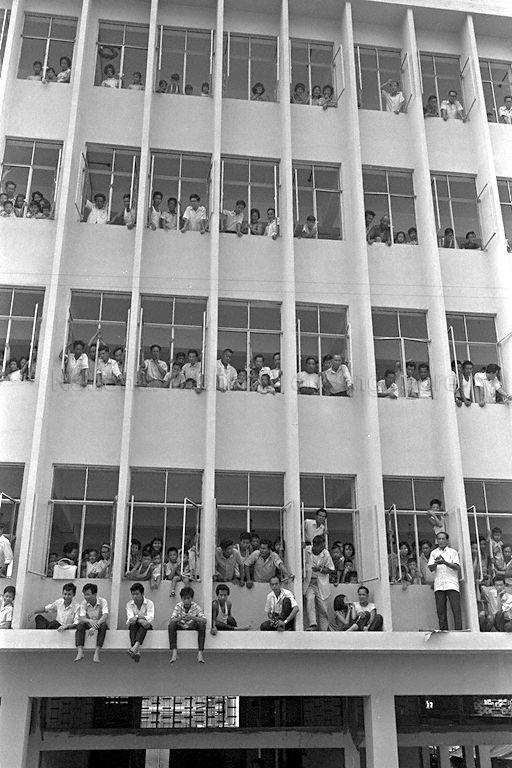 People filling a multi-storey building in Chinatown to watch the parade. Photo from NAS
People filling a multi-storey building in Chinatown to watch the parade. Photo from NAS
Some also watched from their balconies for a better view.
 People watching the parade from their balcony. Photo from NAS
People watching the parade from their balcony. Photo from NAS
The parade included performances by students from various schools, and a lion and dragon dance display at City Hall.
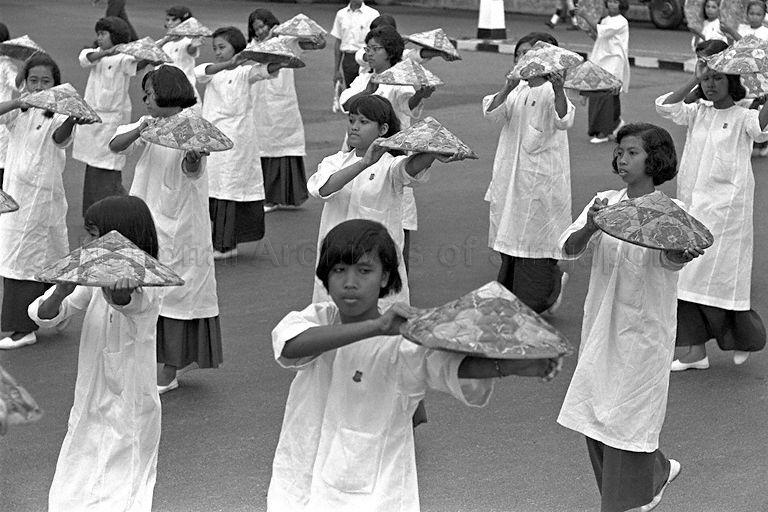 Rehearsal of a dance routine by a Malay girls school. Photo from NAS
Rehearsal of a dance routine by a Malay girls school. Photo from NAS
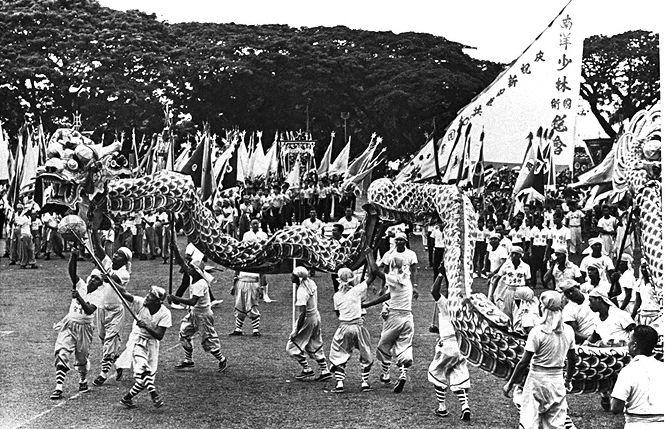 Dragon dance performers. Photo from NAS
Dragon dance performers. Photo from NAS
10.40 am
At approximately 10.40am, rain fell on Singapore's first parade.
However, the military contingents continued marching in the rain.
Many spectators were drenched, but undeterred by the wet weather.
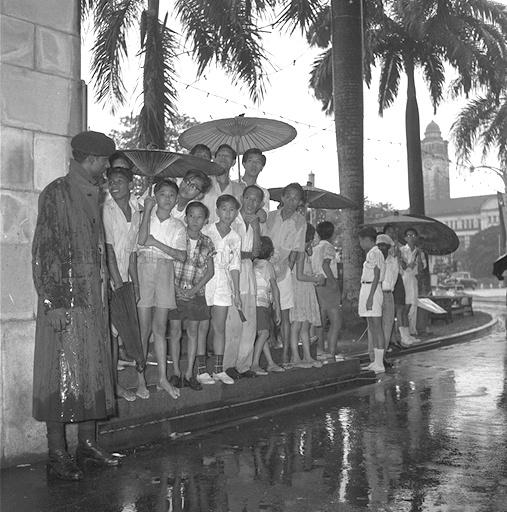 Spectators braving the rain. Photo from NAS
Spectators braving the rain. Photo from NAS
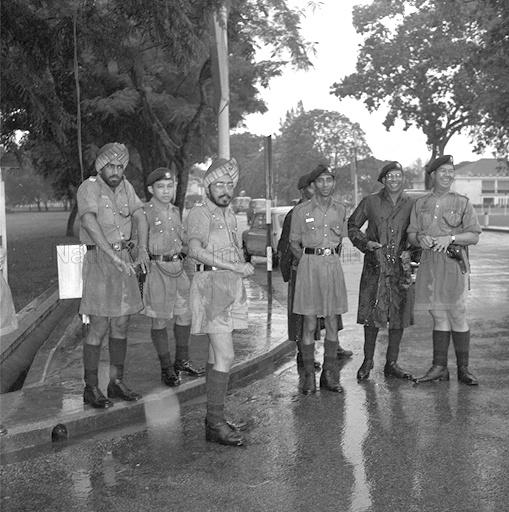 Policemen in the rain - Yes, they still wore shorts at that time! Photo from NAS
Policemen in the rain - Yes, they still wore shorts at that time! Photo from NAS
4pm
The parade had two fireworks displays.
The first display took place at 4pm at the Padang.
In anticipation of the fireworks, people gathered at the Esplanade area.
Hawkers also set up stalls along Queen Elizabeth Walk to cater to the crowd.
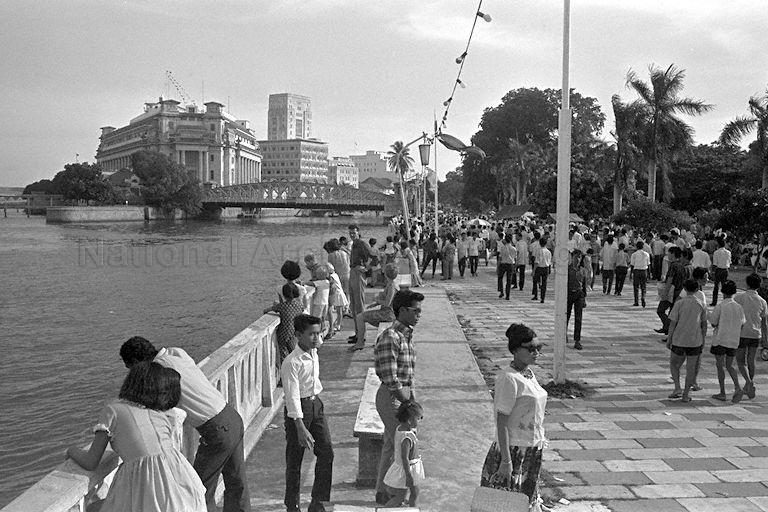 People at Esplanade, waiting for the afternoon fireworks display. Photo from NAS
People at Esplanade, waiting for the afternoon fireworks display. Photo from NAS
7.30pm
In the evening, there was a second fireworks display at Fort Canning Rise.
Motor traffic in the area came to a standstill as thousands headed to Fort Canning to watch the fireworks.
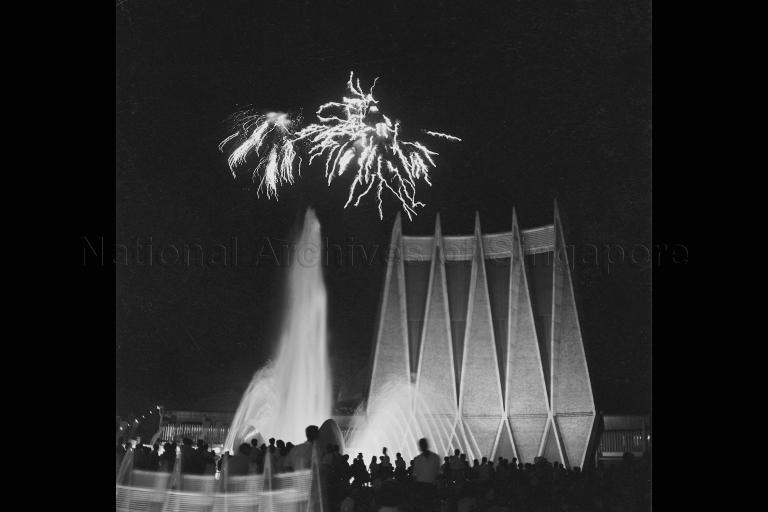 Fireworks seen above the National Theatre. Photo from NAS
Fireworks seen above the National Theatre. Photo from NAS
NDP these days
Since 1966, the parades have evolved to include militaristic displays and greater involvement of Singaporeans from many more walks of life, such as having multi-national corporations send their own marching contingents.
Fireworks are even set off in the heartland estates.
Despite all the changes, the parade fundamentally serves as a reminder that Singapore is an independent nation.
Top image via NAS
 #SG200 is not a celebration. It's a commemoration. What's the difference? Click the logo. Maybe these articles might help.
#SG200 is not a celebration. It's a commemoration. What's the difference? Click the logo. Maybe these articles might help.
If you like what you read, follow us on Facebook, Instagram, Twitter and Telegram to get the latest updates.
